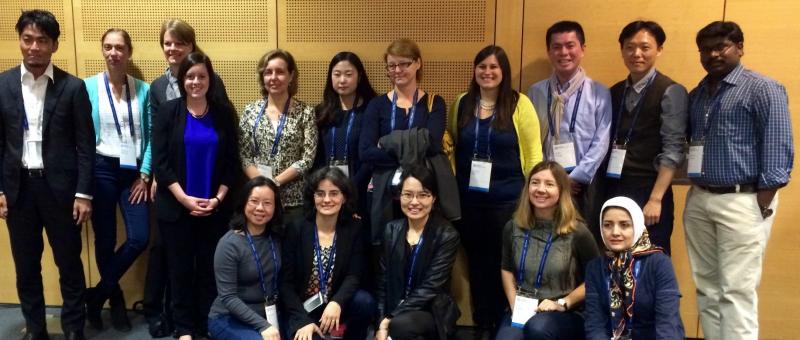

Cochrane’s translation strategy, established in 2014, is aimed at strengthening impact in non-English speaking countries. More than 2,500 translations of Cochrane Review summaries have been published in the first half of 2016 alone. Hayley Hassan, Cochrane’s Translations Support Officer, offers an insight into the impressive work of Cochrane’s translation community.
Who are Cochrane’s translators?
Cochrane translators include health professionals, students, and translators. Located all over the world, they all have one thing in common: they are keen to help make Cochrane evidence accessible to speakers of their native languages. Local Cochrane groups usually lead the different language projects and support hundreds of volunteers, often dedicating a lot of their own free time.
Which languages is Cochrane evidence available in?
Our translation teams currently translate and disseminate our evidence in 13 languages:
- Croatian
- French
- German
- Japanese
- Korean
- Malay
- Polish
- Portuguese
- Russian
- Simplified Chinese
- Spanish
- Tamil
- Traditional Chinese
What do teams translate?
Since our Reviews are large documents, our teams usually translate the scientific abstracts and / or the plain language summary (PLS) sections. This year, some teams have expanded the scope of their translation activities, working hard to translate and record podcasts, as well as the blogshots developed by Cochrane UK. Translated blogshots have been tagged by language - check them out on the recently launched Cochrane Tumblr account!

How many translations have been published?
Thanks to the hard work of our teams, we have published 17,466 translations on our websites as of July 2016, along with more than 2,500 Reviews translated or updated this year alone. Elsewhere, 130 blogshots and 56 podcasts have been translated in 2016. All of our teams’ achievements are summed up in the infographic.
How does translating evidence help us reach a wider audience?
Last year, more than 60% of the total visits to Cochrane.org were made using an Internet browser set to a language other than English, demonstrating just how global our audience really is. The increase in access to translated content on cochrane.org rose dramatically and consistently during 2015: By the end of the year, access had almost quadrupled compared to January. Access statistics for 2016 are very encouraging and we hope to continue to see this effect as more translations are published.
What’s new this year?
One of our main targets in 2016 and beyond is to improve access to the Cochrane Library for non-English speakers, and we are currently working to develop it into a multi-language website.
We strive to improve how we support and communicate with our translators. A translation toolkit has been created to support teams with their translation and dissemination activities, while a regular email digest provides them with relevant updates and reduces ad-hoc communication. In an attempt to help our translation project managers feel more connected, we run regular virtual meetings, and have recently started a Slack channel, to have a space to discuss and share experiences. The biggest challenge for volunteer teams is sustainability, so this year some of our teams received a small amount of funding from core Cochrane funds. The effect of the funding will become more apparent as the year unfolds, but our teams’ achievements and engagement have been tremendous already.
What can you do to support our translation work?
- Read more about getting involved in translation work.
- Follow our Twitter account, @CochraneLingual, and re-tweet updates to your followers.
- Cochrane Review Groups can promote translations of their work through social media.
- Take a look at the translation update in the weekly Communication Network digest, and promote what is of interest to you and your networks. Sign up here! https://lists.cochrane.org/mailman/listinfo/commsnetwork
- Subscribe to the translation mailing list for updates about translation projects and opportunities to contribute.
- Spread the word – share this blog post and infographic!
Hayley Hassan
Cochrane’s Translations Support Officer


